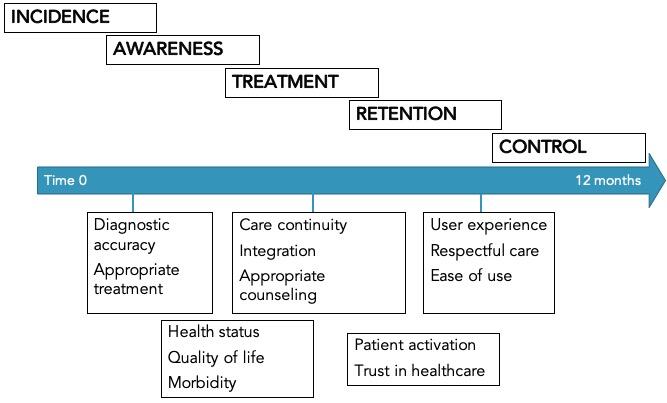Evaluating health system performance requires an understanding of the care received by patients over time and across conditions. However, nearly all data on quality of care are cross-sectional and retrospective, suffer from recall bias, and do not permit assessments of continuity of care to diagnose reasons for health system failures. Timely, longitudinal data on health system performance for people with priority conditions is needed.
Aims of eCohorts
We are developing methods to track care quality and outcomes over time for mobile phone eCohorts of pregnant women, mothers, and newborns. The eCohort method will also be adapted to track care quality and outcomes for individuals with specific chronic conditions (e.g. hypertension, diabetes).
By longitudinally tracking cohorts of people with specific health conditions, the eCohort method will:
- Obtain near-real time data on undermeasured dimensions of health system quality including: continuity and timeliness of care, patient experience, and patient-reported outcomes such as health, economic impact, and patient trust
- Provide a comprehensive, longitudinal overview of the care experience and system competence for patient cohorts across core domains (see figure below)
- Identify bottlenecks for health system performance and good health outcomes over the continuum of care to inform quality improvement interventions
- Create a flexible measurement tool for the assessment and improvement of health systems using mobile phones
Core domains: eCohorts

This diagram provides an overview of the indicators within the core domains that may be collected over the 12 month period. For example, eCohorts will assess quality of maternal neonatal and child health care across 6 domains: competent care and systems, positive user experience, health quality impacts, quality impacts in confidence, quality impacts in economic benefits, and care pathways.
Listen to presentations by researchers developing the eCohort tool from the QuEST Network Launch